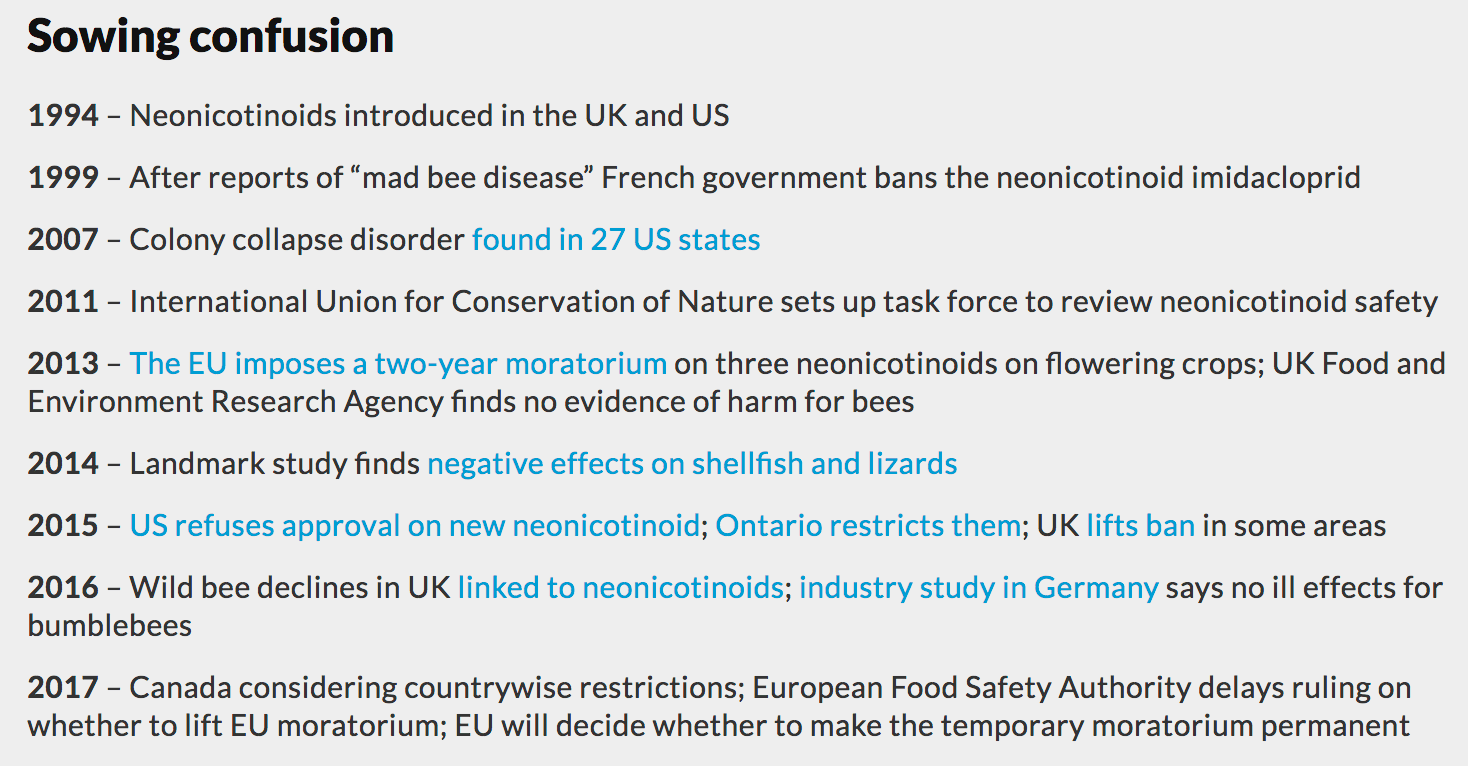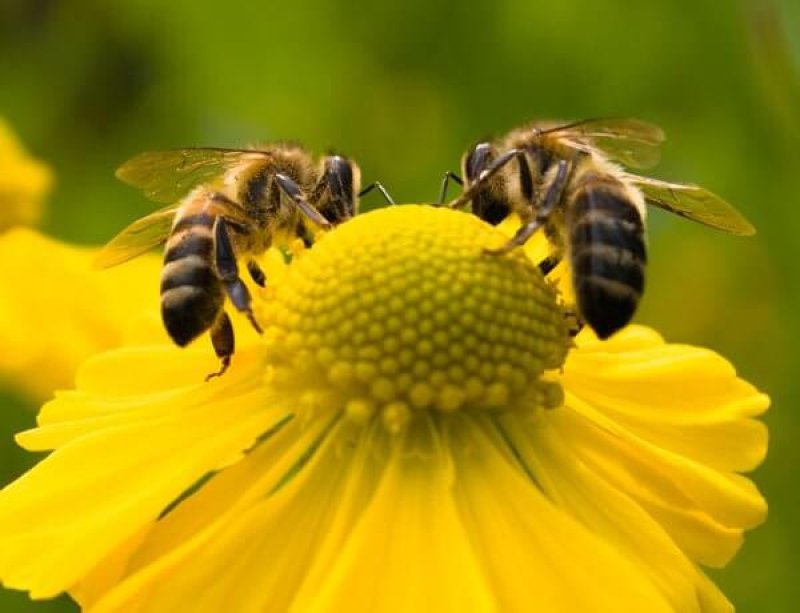“Everyone knows insecticides can kill bees,” says honeybee biologist Francis Ratnieks at the University of Sussex in Brighton, UK. “The question is do the levels of contamination cause harm.”
If the ban is extended beyond flowering crops, [Julian] Little [spokesperson for Bayer Crop Science] says people will need to accept reduced yields of food crops and higher food prices. This would probably lead Europe to import more crops from places that still use neonicotinoids.
And for all that, a ban won’t even reverse the decline in pollinators in Europe. For one thing, it will only apply to agrichemicals, not to any of the pet and home uses. But that could be missing the point. “The major threat is conventional agriculture becoming more intensive and the effects of climate change,” says Adam Vanbergen at the Centre for Ecology & Hydrology.
“Farming assumes the answer always comes in a bottle,” says Dave Goulson, a bee ecologist at the University of Sussex, UK. “We need to be clever in how we manage pests.” Many ecologists argue for integrated pest management, which looks to nature to help control pests, reserving chemicals for emergencies.

The GLP aggregated and excerpted this blog/article to reflect the diversity of news, opinion, and analysis. Read full, original post: Why a neonicotinoid ban isn’t enough to protect the environment
For more background on the Genetic Literacy Project, read GLP on Wikipedia































